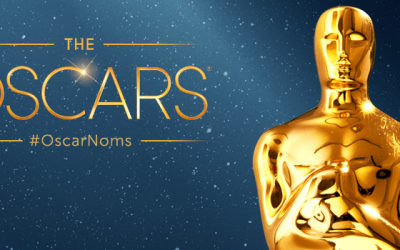Ben Affleck’s 2012 movie, Argo, reduces the so-called Iran hostage crisis (1979-1981) to an episode of smaller proportions with satisfactory results. This isn’t great cinema, and it leaves a lot of meaning, context and history out of the picture, but the docudrama, if that’s the right term, holds interest. The history of Iran’s act of war on the United States in November 1979 is much more dramatic, horrifying and ominous.

This means that director Affleck’s prologue setting the plot’s context contains significant gaps, so the viewer should not take this as anything remotely close to the definitive re-creation of relevant, let alone essential, facts leading up to the Islamic dictatorship’s attack on the American embassy in Teheran. Affleck, with screenwriter Chris Terrio based on a book and a Wired magazine article, emphasizes certain aspects of Iran’s history, underemphasizing certain historic details. The distortion is relatively slight, however, and doesn’t omit anything major that pertains to the rescue story depicted.
Argo‘s first 12 minutes capture the terror of the U.S. embassy takeover by radical jihadists descending upon the Americans after Ayatollah Ruhollah Khomeini had returned from Paris, taken over the country following the dying Shah of Iran’s departure and incited Iran’s Moslems to revert to barbarism. Briefly, smartly contrasted with this primitivism, Affleck takes the leading role in Argo as an American agent whose father had built the Chrysler Building. So the three-step sequence of set-up, Islamic terrorist siege and introduction of the decent American with a legacy in building, as against destroying, is nicely made. The mention of the Affleck character’s connection to an iconic New York City skyscraper as a counterpoint to the mob rule of Iran’s Islamic terrorism is hard to dismiss; it makes an impression on anyone who remembers Black Tuesday.
Affleck’s unassuming agent studies the embassy attack, including Iran’s seizure of Americans working there (Americans were prisoners of war, not “hostages”, a criminal term, but I digress) and details about a band of Americans who manage to take refuge at the Canadian embassy. Argo starts to take shape as an ingenious, or at least clever, plot to trick the Iranians into letting a rescue team into the theocracy under the guise of making a movie. Working in references to Planet of the Apes, Burbank and going Hollywood (Hollywood worships movies about making movies), Argo depicts the lighter side of the Canadian embassy rescue. It’s predictable, as Affleck’s character earns trust among Hollywood types (John Goodman, Alan Arkin) to gain cooperation for putting up the front, but the scheme’s chutzpah keeps momentum going.
An embassy housekeeper and a CIA mission change may alleviate or exacerbate problems during the rescue plan as Affleck puffs on cigarettes, downs alcohol and defies the state and, before you can say “Thank you, Canada” with Canada’s ambassador to Iran (Victor Garber, Titanic, Legally Blonde) getting pre-declassification credit, Argo builds tension into a harrowing climax at Teheran’s airport. With good casting, an effective score by Alexandre Desplat and the fun of lampooning Hollywood’s sillier movies, Affleck’s Argo maintains lightness as it dramatizes an American rescue mission. This episodic approach minimizes wider implications, however, and ultimately borders on triumphalism or revisionism on behalf of President Carter, whose administration ordered the high-risk operation. This becomes more apparent on the iTunes extras, which also include the fact that Affleck was a Middle Eastern studies major at Occidental College in Los Angeles.
What Argo omits or skims is the shame and misery Americans felt during the media circus, brutality and torture of the Iranians against U.S. prisoners who were not rescued, complicity of the State Department in sanctioning and evading the Moslem jihadism, Ross Perot’s order to rescue his company’s employees, the Reverend Jesse Jackson’s meddling which led to the release of only those U.S. prisoners who were neither white nor male and other facets of the 444-day ordeal which would enable and embolden state sponsors of terrorism against America.
Argo remains a light but neat, decent and involving slice of life from an incredible, dark chapter in modern American history. For American nostalgia in which the U.S. did something bold and right, for a change, complete with Affleck’s character’s kids playing with Star Wars toys, Argo is comforting and positive. Also, look for My Three Sons‘ Barry Livingston, Maude‘s Adrienne Barbeau and Orange is the New Black‘s Taylor Schilling.



